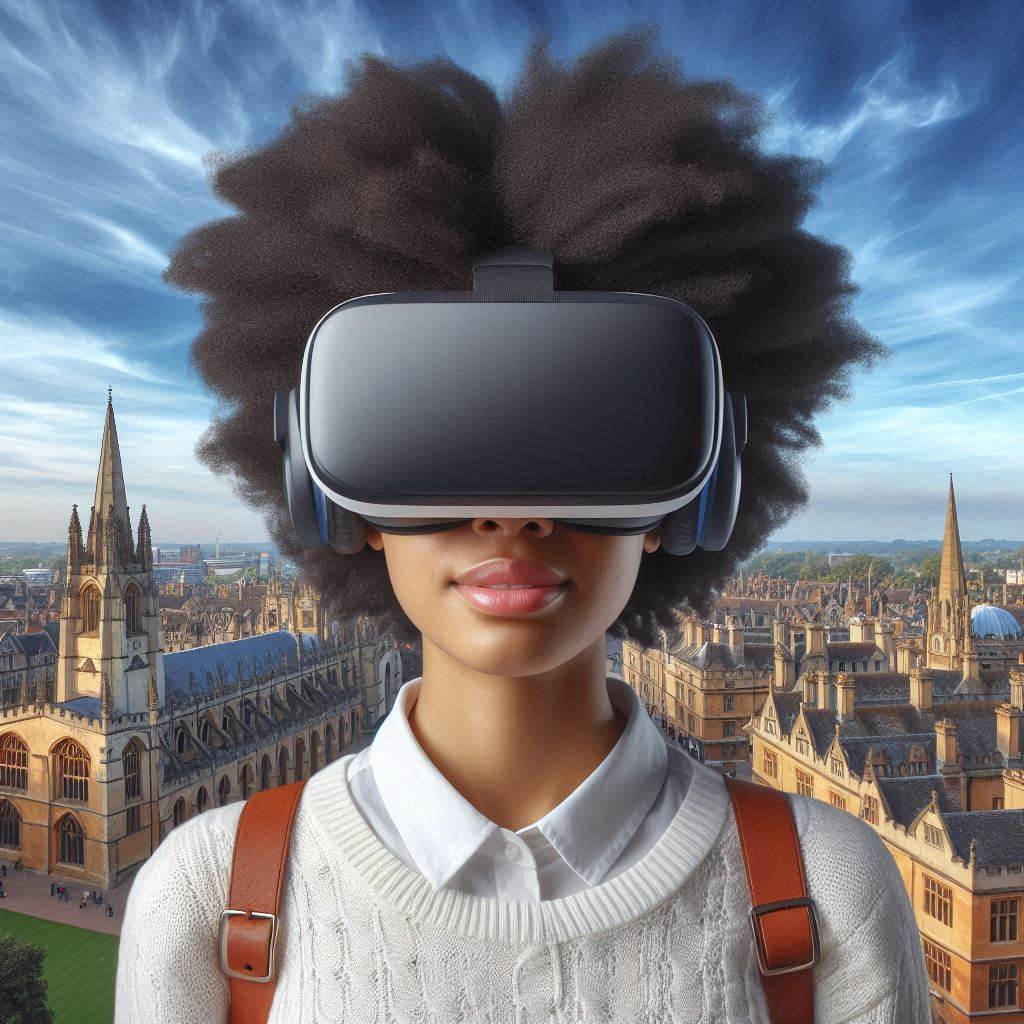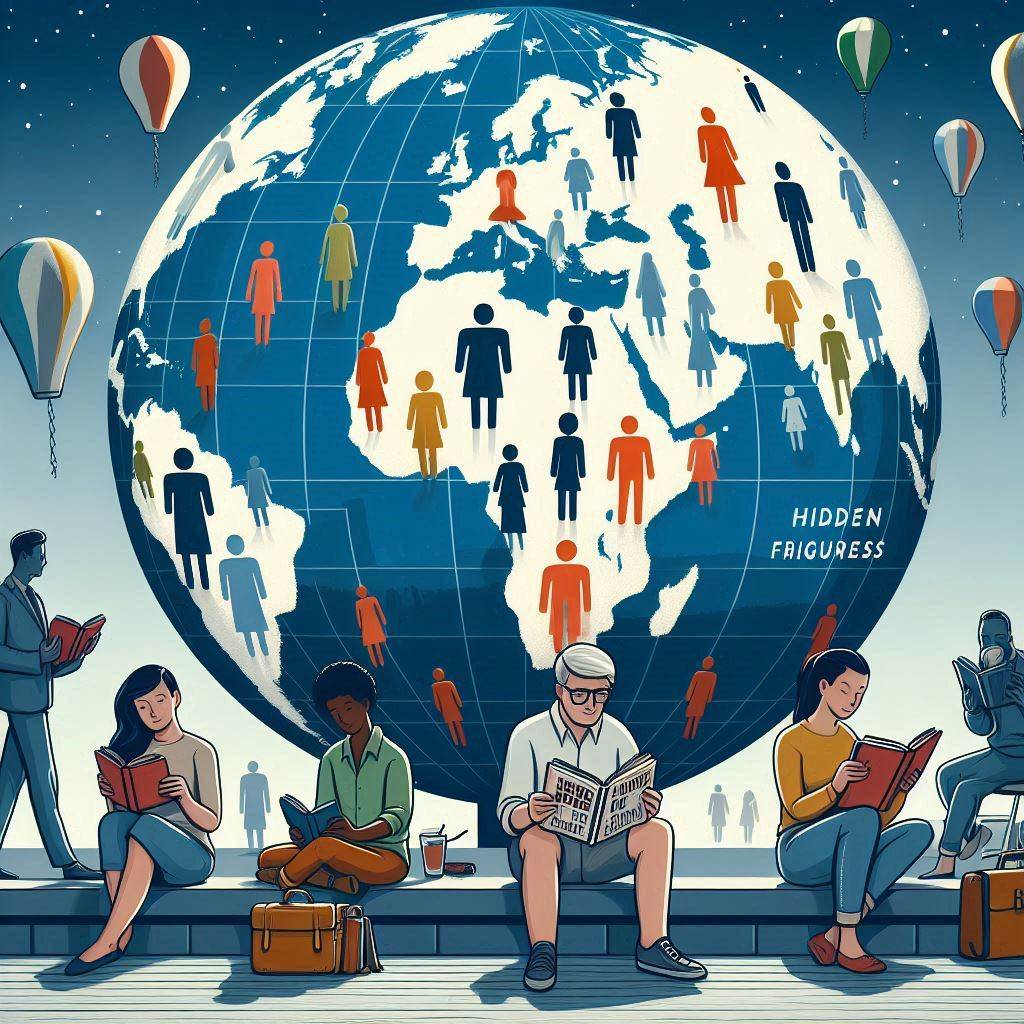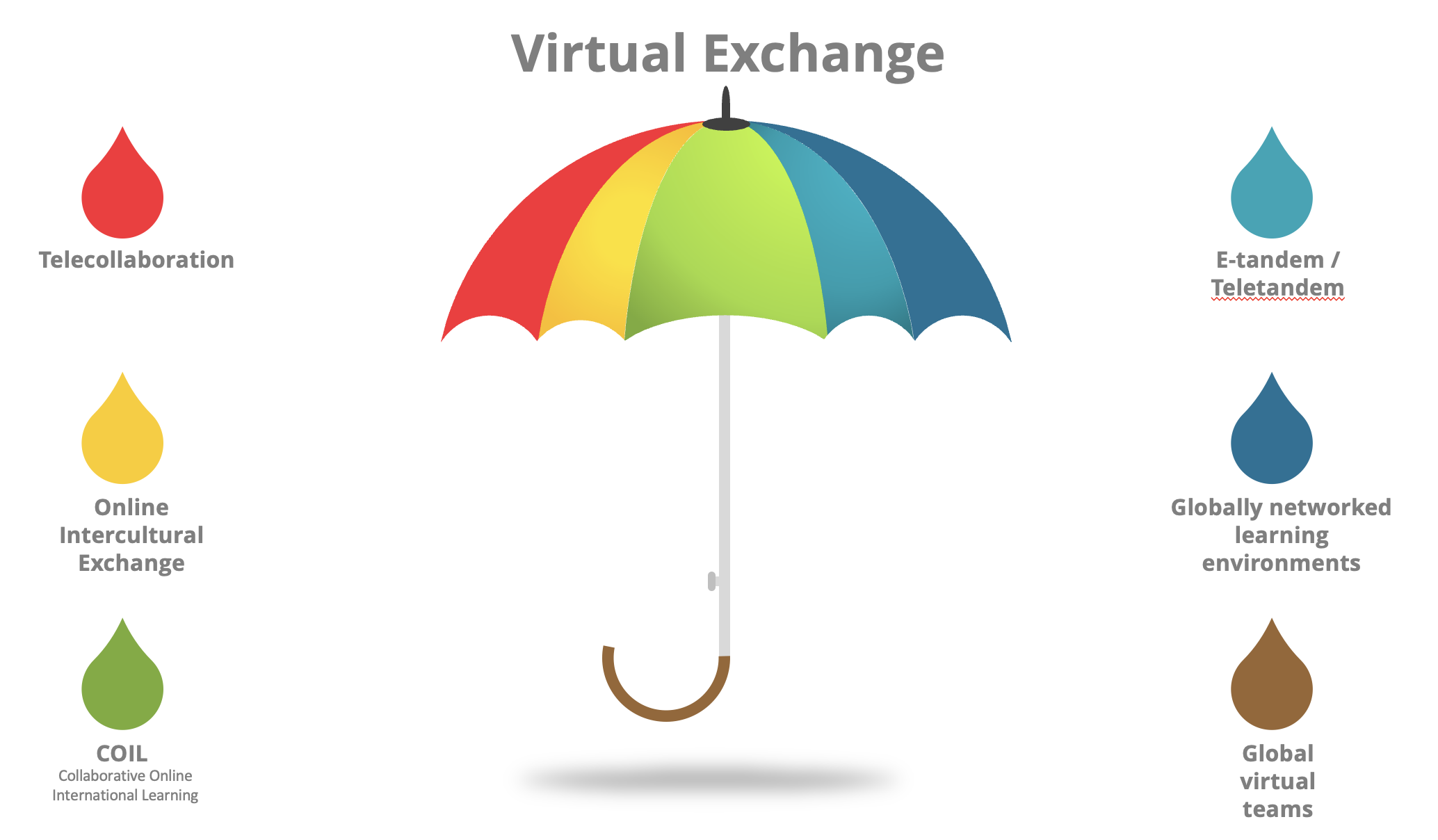Virtual Exchange is an umbrella term used to describe any online, international, people-to-people collaboration. Therefore, it can look very different depending on the aims of the partners, the people involved and participants’ availability and access to resources and technology. It is also called many different things, as you can see from the image above. The important thing is to design a project that suits the people, rather than try to fit the people to the project.
Below are some examples of VE projects, illustrating the broad range of topics and approaches.

Oxfordshire County Libraries, UK and Bergen Library, Norway.
Participants in Oxford and Bergen each created immersive stories about their lives which their partners could interact with using VR headsets.
Image generated with AI ∙ 16 August 2024 at 2:54 pm
Greensboro, North Carolina Public Library, USA and various libraries worldwide.
A virtual book club for over 160 people in North Carolina, Afghanistan, Liberia, Nicaragua, and the Philippines who read Hidden Figures and came together for a series of in-person and virtual discussions focusing on women in Science, Technology, Engineering and Maths (STEM), diversity and inclusion, and the role of community. The five-month long virtual exchange culminated with a global virtual guest speaker, an astronautics engineer, who spoke to the participants about her work on creating capsules for reentry and leading teams for NASA.
Image generated with AI ∙ 16 August 2024 at 3:01 pm


Fredericksburg-Kathmandu Sister City initiative
Fredericksburg City Council.
This initiative grew out of the tremendous outpouring of good will of Virginians and Nepalis who joined together with Rise Nepal and other partners after the tragic 2015 Nepal earthquakes. A civic-led initiative, it includes current and future exchanges fostering cross cultural understanding and positive outcomes in community service and the environment, academic exchanges between the University of Mary Washington and Tribhuvan University in Nepal, arts and culture, business, trekking and tourism.
The COIL Connect website also maintains a list of case studies, mostly based in Higher Education, which you may find useful.

No responses yet